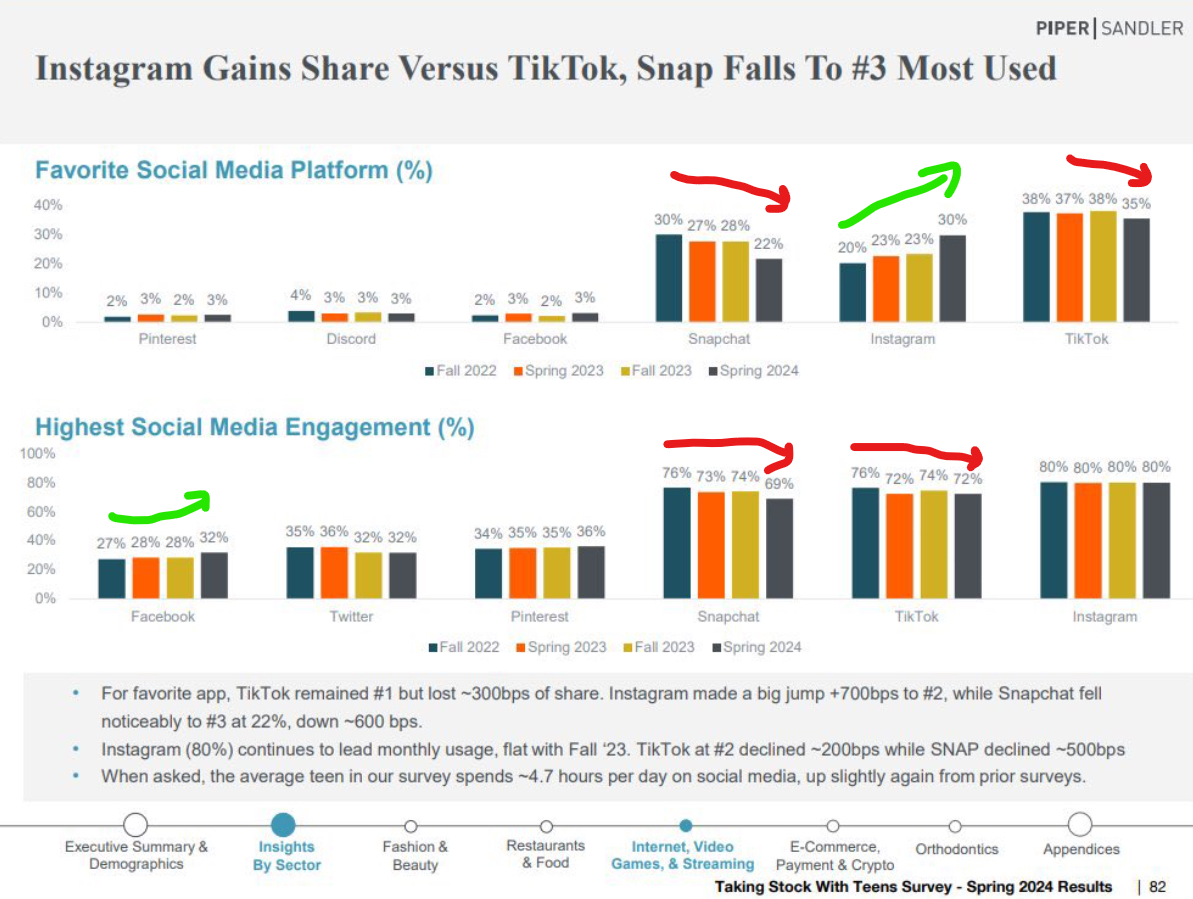
Good Billionaires and the Last of Silicon Valley’s Original Founders
The morally questionable edition
April 13, 2024 · Updated January 31, 2026
Happy Sunday! In strange news, a white Ford Bronco was seen careening down Sand Hill Road this week. Bizarre, but in California, anyone can get away with murder.
Also this week, Gareth Edwards unearths the story of Lore Harp McGovern, the suburban housewife who built a microcomputer empire in the seventies; Evan Armstrong searches high and low for that rarest of creatures—the truly moral billionaire; Dan Shipper considers what literary skills are prized in a world where AI can write well; and Rhea Purohit reveals the secrets to making movie magic with AI. On How Do You Use ChatGPT?, Dan chats with a data scientist who wrote an entire book in just 30 days with the help of (you guessed it) AI. Plus: our take on the latest tech and business news.
Was this newsletter forwarded to you? Sign up to get it in your inbox.
Our stories
"She Built a Microcomputer Empire From Her Suburban Home" by Gareth Edwards/The Crazy Ones: You've probably never heard of Lore Harp McGovern, but in the mid-1970s, this housewife and mother of two built a multimillion-dollar computer company called Vector Graphic out of her California home. Read the untold story of one of Silicon Valley's original female founders who refused to let male execs treat her as a novelty. 🎧 Listen to the audio version on Spotify.
"Can the Truly Moral Billionaire Please Stand Up?" by Evan Armstrong/Napkin Math: Evan went on a quest to find a billionaire with a perfect track record—married to their first spouse, with successful and loving kids, and outstanding moral character. The catch? They basically don't exist. Read this if you want to see what he discovered about the complicated nature of wealth, power, and virtue (plus the one person who cleared the bar).
“Capability Blindness and the Future of Creativity” by Dan Shipper/Chain of Thought: Are you suffering from capability blindness? Like thinking Facebook would never make money in 2012, you may be underestimating AI's potential today. Read this to learn what becomes rare in a world where AI can write well, and how the future of creativity may look more like gardening than sculpting.
🎧 "He Wrote a Book in 30 Days—With AI" by Dan Shipper/Chain of Thought: Writing a book in a month sounds impossible, right? Not for data scientist Seth Stephens-Davidowitz. He did it with the help of ChatGPT and other AI tools, and the process was the most fun he's ever had. Listen to or watch this episode of How Do You Use ChatGPT? to learn Seth's secrets for using AI to supercharge your data analysis and creative projects. 🔏 Paid subscribers have access to the episode transcript.
🔏 "Inside the Pod: How to Make a Movie With ChatGPT, Midjourney, and Runway" by Rhea Purohit/Chain of Thought: Do you want to know how to turn you dreams into a movie? With AI you can. Read this to see how you can use generative AI to easily and cheaply make your ideas shine on the silver screen.
The backchannel
Evan’s quest to find a moral billionaire generated a ton of feedback, most of it off the record. One comment we could share:
“I’ve always had the prejudice that coming out on top in the business world requires a certain degree of sociopathy. Perhaps the only hope is the ‘accidental’ billionaire that Evan alluded to last week...In other words, someone that didn’t have to claw their way to the top stepping on the backs of others to reach their pinnacle of success. I think with an AI assist, someone could reach the billion-dollar mark with their good-guy moral fiber in place.” —An Every reader
Want to chat? DM Dan or Evan on X.
Chain of links
“Tens of millions context window”: Magic, a startup that no one besides us seems to write about, accidentally announced at the Sohn Conference that it had made a context window that was multiple tens of millions long. Models are now at the point where fine-tuning is no longer required—you can just drop an entire codebase into a prompt.
AIs work better if you talk to them like they’re on Star Trek. LLMs are just really freaking weird machines. A new study showed that for asking an LLM to do a 50-question math exam, you should do the prompt in the voice of a character on Star Trek. If you want a 100-question test, prompt it like you’re writing a political thriller. Why? How? Hell if we know.
Hardware is very, very hard. Humane, an AI hardware device company that raised $230 million, finally released its device. The AI wearable got professionally skewered by the media. We will have our review soon, but for now, we salute the people who try.
Apple made a ferret that can watch you FaceTime. Up to this point, Silicon Valley’s favorite monopolist had been quiet on the LLM front. This week Apple released a research paper on the “ferret” multi-modal models that can parse what is happening on your phone’s screen. Look for these capabilities to control your apps to be integrated into Siri over the next few years.
Sexual deepfakes at scale. Teenagers figured out how to use generative AI to make non-consensual porn of their classmates. In October of 2022, I warned that “if there are five photos of your face on the internet, someone can now generate porn with you in it with about 30 minutes of work.” This has moved from a hypothetical scenario to high school reality. While, technically, you can do the same with Photoshop, there is a material difference in the ease, scale, and quality of these images. If you haven’t yet, have this talk with your teens. It is almost a guarantee that they have classmates experimenting with this stuff. —Evan Armstrong
The napkin math
$53 million trading at $1.1 billion. A fund called D/XYZ (pronounced Destiny), which contains a bundle of private company shares (mostly SpaceX) that the firm values at $53 million, recently went public. Now, for reasons that we are unsure of, the investment vehicle is currently trading at 20 times asset value. This makes no sense! But as I argued last year, the market is always irrational in the short term. Rate increase coming?
We have Instagram revenue numbers! We’ve wanted to know this for years, and it’s finally happened. Instagram made $31 billion in 2021, as disclosed in a recent FTC filing. This would mean Instagram ran at about 25 percent of Meta’s $120 billion 2021 revenue. Our bet is that it is probably higher now. Instagram is the second-greatest acquisition of all time, behind Google’s purchase of DoubleClick, with which the company built its ad marketplace.
Maybe we should care that everyone is running from China? Apple is making $14 billion worth of iPhones in India. TSMC (the world’s most important chip manufacturer) is being forced to build plants in Arizona by customers’ concerns over geopolitical risk. The U.S. gave $6.6 billion to Samsung for building plants in Texas. China makes the world’s hardware, and Taiwan makes the world’s chips. If companies are leaving, it’s a signal.
An aggregator bought an aggregator bought an aggregator. Last year Automattic, an internet holding company that owns applications like Wordpress and Tumbler, bought Texts.com, which aggregates text messages. This week it announced it had also bought Beeper—another aggregator of your messages—for $125 million. This is one of the most fascinating companies in the world. It’ll be interesting to watch if or how it tries to integrate all the pieces together. —EA
For the love of charts
The teens love Insta. A recent survey shows that Instagram (and even Facebook) is gaining popularity among teens, at both TikTok’s and Snap’s expense:
Source: Piper Sandler.Instagram took over the number-two spot as “favorite” from Snap and is within three percentage points of TikTok for the overall lead (closing the gap from 15 percentage points only six months ago). On a monthly usage basis, Instagram retains the top spot (while TikTok and Snap both declined), and even Facebook—long-scorned as a Boomer platform—experienced a small lift. Teens and their preferences can be fickle, but Meta is firing on all cylinders right now (and one can only imagine the impact if TikTok ever does get banned). Did you know that there are over 300 million Facebook users in India—only about 20 percent of the (growing) population? Zuck is just getting started. —Moses Sternstein
The examined life
What if our worst qualities are actually our best? Recently I listened to an interview with Irish theologist and poet John O’Donohue from 2006 in which he asked what would happen if the things we hate about ourselves, the qualities we despise and can’t stand, are actually the best things about who we are. It was a powerful reframe of a problem I've long struggled with—of harshly judging my traits I perceive to be “weak” or “bad.” For instance, I've always been self-conscious about my sensitivity: I have strong feelings and an antenna for the needs and emotions of others. But by allowing myself to be sensitive, I give others the space to be the same—enabling me to forge meaningful relationships with different types of people and enriching my life as a result. As O'Donohue suggests, embracing the qualities I once rejected is like beginning to discover the hidden gifts that have been within me all along. —Ash Sharma
AI is happening—are you keeping up?
AI will transform every process, within every team, within every department, at every company, across every industry. While companies know they need to implement it or be left behind, they’re often paralyzed to move forward with AI initiatives. As a team of thinkers, tinkerers, entrepreneurs, and experienced consultants at Every, we're working with select businesses to develop the definitive guide to AI within your organization, implement the highest-ROI AI initiatives, train your organization on how to scale itself, and advise on the ever-changing AI landscape. Want to learn more? We’d love to talk.
Eye candy
What if taking care of a plant were like tending to a Tamagotchi?
Source: X/Lucas Crespo.
That’s all for this week! Thanks for reading, and be sure to follow Every on X at @every and on LinkedIn. Want to listen to a musical version of last week’s Digest? Take a listen.
The Only Subscription
You Need to
Stay at the
Edge of AI
The essential toolkit for those shaping the future
"This might be the best value you
can get from an AI subscription."
- Jay S.
Join 100,000+ leaders, builders, and innovators

Email address
Already have an account? Sign in
What is included in a subscription?
Daily insights from AI pioneers + early access to powerful AI tools








Comments
Don't have an account? Sign up!